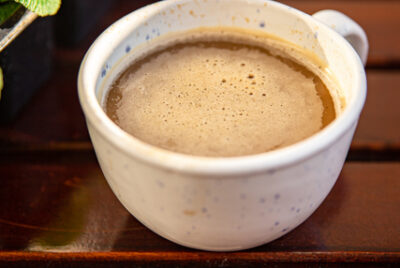Is Decaf Coffee a Diuretic?
As a coffee enthusiast, you may have heard conflicting information about the diuretic effects of coffee and decaf coffee. Many people ask “Is decaf coffee a diuretic?” and seem to have a hard time finding a clear answer.
In this article, I’ll delve into the topic and provide insights to help you understand the relationship between decaf coffee and diuretic effects.
Understanding Diuretics
Before we discuss decaf coffee, let’s first understand what diuretics are. Diuretics are substances that promote increased urine production, leading to increased frequency of urination. They are commonly used to treat conditions such as high blood pressure and edema.
What Makes Coffee a Diuretic?
Coffee, including both regular and decaf varieties, has been traditionally associated with diuretic properties. The diuretic effect of coffee is primarily attributed to its caffeine content. Caffeine acts as a mild stimulant that stimulates the kidneys to produce more urine.
Decaf Coffee and Diuretic Effects
Decaffeinated coffee, as the name suggests, has undergone a process to remove most of its caffeine content. The purpose of decaffeination is to offer a coffee option with lower levels of caffeine for those who are sensitive to its effects or prefer to limit their caffeine intake.
Due to the reduced caffeine content, decaf coffee has a significantly milder diuretic effect compared to regular coffee. While it can still have some diuretic properties, the impact is much less pronounced. The exact degree of diuretic effect may vary depending on the individual’s sensitivity to caffeine and the specific decaffeination process used.
Caffeine Content in Decaf Coffee
The caffeine content in decaf coffee can vary depending on the specific brand and brewing method. On average, an 8-ounce cup of decaf coffee contains approximately 2-3 milligrams of caffeine, while a regular cup of coffee can contain anywhere from 95-200 milligrams. It’s important to remember that even small amounts of caffeine can have mild diuretic effects.
Other Factors to Consider
When evaluating the diuretic effects of decaf coffee, it’s important to take into account several other factors that can influence urine production and hydration levels. While caffeine is a significant contributor to the diuretic properties of coffee, these additional factors can play a role in the overall effect on the body. Let’s explore them in more detail:
Fluid Volume: The amount of fluid consumed, including decaf coffee, can affect urine production. Drinking larger quantities of any liquid, including decaf coffee, can lead to increased urine output. It’s important to maintain a balance between hydration and the body’s elimination of fluids.
Hydration Status:
Individual hydration levels can impact the body’s response to decaf coffee. If you are adequately hydrated, the diuretic effects may be less noticeable compared to when you are already dehydrated. It’s important to drink water and other hydrating beverages alongside decaf coffee to maintain proper hydration.
Sensitivity to Caffeine:
Each person has a unique sensitivity to caffeine. Some individuals may experience stronger diuretic effects from decaf coffee due to their personal caffeine sensitivity. Factors such as metabolism, body weight, and genetic variations can influence how caffeine affects an individual.
Time of Consumption:
The timing of decaf coffee consumption can also impact its diuretic effects. Drinking decaf coffee earlier in the day may result in more frequent urination, while consuming it closer to bedtime may have a less noticeable impact on urine production during the night.
Overall Fluid Intake:
Remember that decaf coffee is just one source of fluids in your daily life. Consider the total volume of fluid intake from other beverages and water-rich foods. If you have a well-balanced hydration routine that includes water and other hydrating drinks, the diuretic effects of decaf coffee may be less significant.
Individual Differences:
It’s essential to recognize that individual responses to decaf coffee can vary. Some people may experience noticeable diuretic effects, while others may not notice any changes in urine output. Pay attention to your body’s signals and adjust your consumption accordingly.
Hydration and Decaf Coffee
Contrary to popular belief, moderate consumption of decaf coffee can contribute to your daily fluid intake. Coffee is mainly composed of water, and drinking decaf coffee can still help keep you hydrated. However, it’s important to balance your overall fluid intake with other non-caffeinated beverages and water-rich foods.
Benefits of Decaf Coffee
While decaf coffee may have a mild diuretic effect, it also offers several potential health benefits. Decaf coffee contains antioxidants and bioactive compounds that have been linked to reduced risk of certain diseases, including type 2 diabetes and liver disease. It can also have positive effects on bowel movements. Additionally, decaf coffee can provide a similar taste and aroma experience to regular coffee without the stimulating effects of caffeine.
Decaf Coffee and Fluid Balance
For most individuals, moderate consumption of decaf coffee as part of a balanced fluid intake is unlikely to have a significant impact on fluid balance. However, if you have specific health conditions or concerns about fluid balance, it’s always best to consult with your healthcare provider for personalized guidance.
Expert Recommendations
Based on current scientific understanding, moderate consumption of decaf coffee is generally considered safe and unlikely to cause significant diuretic effects. However, individual responses to caffeine can vary, and it’s essential to listen to your body and adjust your coffee consumption accordingly. If you have specific health concerns or are sensitive to caffeine, it’s advisable to seek guidance from a healthcare professional.
Conclusion
In conclusion, while decaf coffee does contain trace amounts of caffeine, its diuretic effect is significantly reduced compared to regular coffee. Moderate consumption of decaf coffee is generally considered safe and can contribute to your daily fluid intake. We cover the subject “Does Coffee Help Hangovers?” in another article touching on this. As with any beverage, it’s important to listen to your body, maintain a balanced fluid intake, and consult with a healthcare professional if you have specific concerns.
FAQs
Is decaf coffee completely caffeine-free? Decaf coffee is not entirely caffeine-free but contains significantly less caffeine compared to regular coffee. It typically contains trace amounts of caffeine, usually around 2-3 milligrams per 8-ounce cup.
Does decaf coffee have the same health benefits as regular coffee? Decaf coffee retains many of the beneficial compounds found in regular coffee, such as antioxidants. While it may offer similar health benefits, it lacks the stimulating effects of caffeine.
Can decaf coffee cause dehydration? Moderate consumption of decaf coffee is unlikely to cause dehydration. Remember to balance your overall fluid intake with other non-caffeinated beverages and water-rich foods.
Can decaf coffee be enjoyed in the evening without affecting sleep? Decaf coffee has significantly lower caffeine content and is generally considered safe to consume in the evening without significant impacts on sleep for most individuals. However, sensitivity to caffeine can vary, so it’s best to listen to your body and adjust your consumption accordingly.
Should pregnant women avoid decaf coffee? Pregnant women are generally advised to limit their caffeine intake. While decaf coffee has reduced caffeine content, it’s still advisable to consult with a healthcare professional for personalized guidance during pregnancy.
Remember, everyone’s response to caffeine can vary, and it’s important to consider your individual health status and tolerance. Moderation is key, and enjoying decaf coffee in a balanced and mindful way can be a delightful part of your coffee experience.




